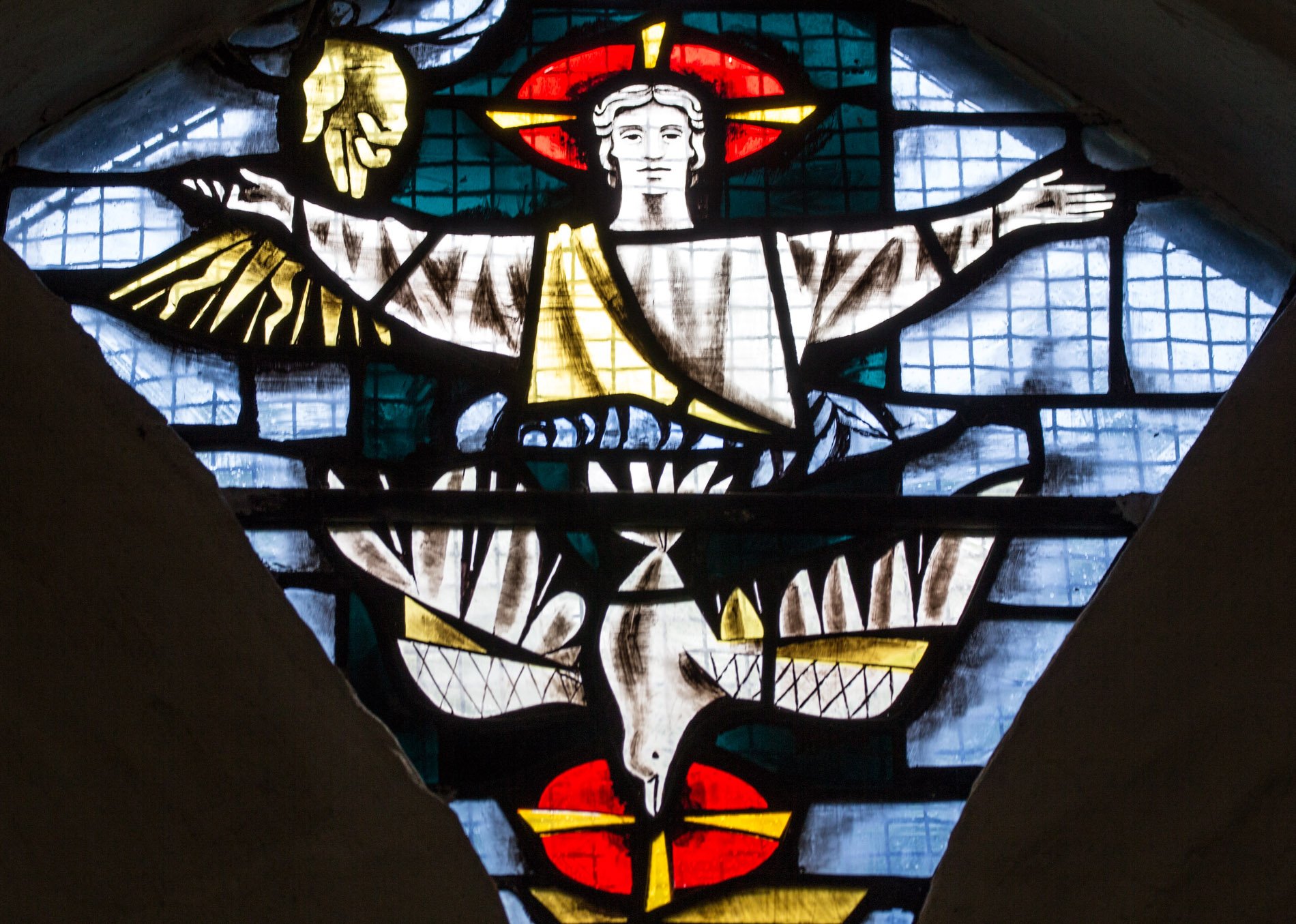Regina Caeli – Queen of Heaven, Rejoice!
The Regina Caeli, Latin for “Queen of Heaven,” is a hymn and prayer ...

Here Irenaeus comments on Jesus statement in Matthew 11:27 that “no one knows the Son except the Father; and no one knows the Father except the Son, and those to whom the Son has revealed him.” The full revelation of God comes in and through his Son.
No one can know the Father apart from God’s Word, that is, unless the Son reveals him, and no one can know the Son unless the Father so wills. Now the Son fulfills the Father’s good pleasure: the Father sends, the Son is sent, and he comes.
The Father is beyond our sight and comprehension; but he is known by his Word, who tells us of him who surpasses all telling. In turn, the Father alone has knowledge of his Word. And the Lord has revealed both truths. Therefore, the Son reveals the knowledge of the Father by his revelation of himself. Knowledge of the Father consists in the self-revelation of the Son, for all is revealed through the Word.
The Father’s purpose in revealing the Son was to make himself known to us all and so to welcome into eternal rest those who believe in him, establishing them in justice, preserving them from death. To believe in him means to do his will.
Through creation itself the Word reveals God the Creator. Through the world he reveals the Lord who made the world. Through all that is fashioned he reveals the craftsman who fashioned it all. Through the Son the Word reveals the Father who begot him as Son.
All speak of these things in the same language, but they do not believe them in the same way. Through the law and the prophets the Word revealed himself and his Father in the same way, and though all the people equally heard the message not all equally believed it. Through the Word, made visible and palpable, the Father was revealed, though not all equally believed in him. But all saw the Father in the Son, for the Father of the Son cannot be seen, but the Son of the Father can be seen. The Son performs everything as a ministry to the Father, from beginning to end, and without the Son no one can know God. The way to know the Father is the Son.
Knowledge of the Son is in the Father, and is revealed through the Son. For this reason the Lord said: No one knows the Son except the Father; and no one knows the Father except the Son, and those to whom the Son has revealed him (Matt 11:27).
The word “revealed” refers not only to the future – as though the Word began to reveal the Father only when he was born of Mary; it refers equally to all time. From the beginning the Son is present to creation, reveals the Father to all, to those the Father chooses, when the Father chooses, and as the Father chooses. So, there is in all and through all one God the Father, one Word and Son, and one Spirit, and one salvation for all who believe in him.
This post on the revelation of the Father through this Son is a reflection on Matthew 11:27 by St. Irenaeus. It is an excerpt from the monumental work by St. Irenaeus of Lyon, Against Heresies (Lib. 4, 6, 3.5.6.7: SC 100, 442-446. 448-454). It appears in the Roman Office of Readings for Wednesday in the 1st week in Ordinary Time. The accompanying biblical reading comes from Sirach 24:1-22
For more on Christ as the fullness of Revelation, see the JESUS, the ETERNAL WORD OF GOD section of the Crossroads Initiative Library.
No Comments